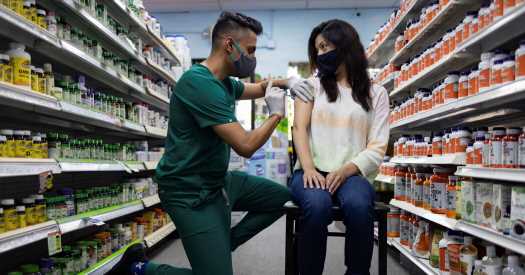Earlier this year, as Covid-19 vaccines became more widely available, some women and girls went on social media to describe changes in their menstrual cycles after receiving the shots, including irregular cycles, painful periods and heavy bleeding.
Some postmenopausal women shared stories about getting their periods for the first time in years. Many wondered whether the vaccines might be the reason.
Now researchers at five institutions, backed by funding from the National Institutes of Health, will be conducting yearlong studies to examine any possible connections between vaccination and irregular menstruation, and to help allay concerns that might prevent women from getting their shots.
The evidence around abnormal periods is so far purely anecdotal. There is no known link between vaccination and changes in menstruation, and public health experts reiterate that vaccines are safe, effective and necessary to end the pandemic.
But the stories underpin a persistent data gap about reproductive health and women’s menstrual cycles that is not collected during clinical trials, including during trials of the Covid vaccines. There have also been no scientific studies published examining a potential relationship between the two.
“This is an important, overlooked issue,” said Dr. Hugh Taylor, chair of the department of obstetrics, gynecology and reproductive sciences at Yale School of Medicine, who added that he has heard from his own patients about differences in their periods after receiving the vaccine.
“A lot of people have irregular menstruation for all sorts of reasons, so is this really different in people with the vaccine, or is it just that when people have it, they are linking it to the vaccine?”
The research will be undertaken by teams at Boston University, Harvard Medical School, Johns Hopkins University, Michigan State University and Oregon Health and Science University. The studies will include participants of all ages and backgrounds who have not yet been vaccinated, including those who plan to get the shots and those who do not, in order to study their menstrual cycles before and afterward.
Menstrual health can be a reflection of women’s overall health, doctors say. But they point out that a number of different factors can temporarily affect a woman’s period, including stress, illness or lifestyle changes. Periods, including length and flow of a menstrual cycle, also vary widely from person to person.
Source: Read Full Article
